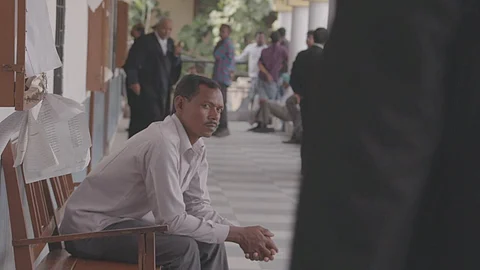
- HOMEGROWN WORLD
- #HGCREATORS
- #HGEXPLORE
- #HGVOICES
- #HGSHOP
- CAREERS
- ABOUT US
- CONTACT US

India, a land rich in mythological tales that extol the virtues of goddesses and their divine strength, grapples with a troubling dichotomy. While its scriptures are replete with stories of female deities embodying power and resilience, the reality for women in the country starkly contrasts these ideals. Despite the veneration of these goddesses, women often find themselves subjected to sexual assault and violence on a daily basis, highlighting the stark hypocrisy embedded within the nations cultural fabric. The deeply ingrained misogynistic structure perpetuates a narrative where women are burdened with the responsibility of carrying the shame and blame for the transgressions committed against them. A new documentary defies this shockingly nonchalant rhetoric of rape culture.
Directed by Toronto-based Indian filmmaker Nisha Pahuja, To Kill a Tiger chronicles Ranjit, a rural farmer and father's challenging quest for justice for his child who has been sexually assaulted. In a country where rape cases are reported every 20 minutes and conviction rates remain below 30%, this father's decision to stand by his daughter rewrites the narrative of rape as a passive tragedy that just happens without a perpetrator. Through intimate access, the documentary captures the emotional journey of an ordinary man confronting a giant monster with extraordinary courage.
Instead of justice, the appalling suggestion by the police to resolve the rape of merely a 13-year-old girl by arranging her marriage to one of her attackers to 'save face'. The threats of isolation and violence from the community that the family is met with, as depicted in the documentary, lays bare the deep-seated indifference and even animosity that society harbours towards women and the systemic ways in which men's lives are regarded above women's in that they're protected with no sense of accountability.
The documentary intimately follows Ranjit's emotional struggles, grappling with guilt, community pressure, financial strain, and an indifferent police force, all while providing emotional support to his daughter in the aftermath of the traumatic event. With the judicial process dragging on, doubts emerge about whether a guilty verdict would mend or further divide the community. Yet throughout it all, Ranjit unwaveringly demonstrates a simple yet powerful act; acknowledging his daughter's humanity.
We're a people run by outrage. In this country, we're angry about everything from religion to food and sports to politics, but all that anger somehow goes away when it comes to sexual violence against women. Even today the only concern most people have about rape is the 'bad rep' that comes with it, where the allegation of assaulting a woman is culturally feared more than the act of violence itself.
It's this very same system of misplaced shame and responsibility that the film tries to subvert. The director had initially intended to mask the girl's identity out of respect for her privacy, but the survivor, upon watching the film, expressed a desire to be depicted uncensored, with a sense of pride and a determination to no longer remain hidden and share her story. The courage exhibited by both Ranjit and her daughter in the film emerges as a powerful cultural shift that could change the larger narrative about women in society and go some way towards dismantling rape culture across the country.
You can follow Nisha here for updates on the screening of the documentary.
